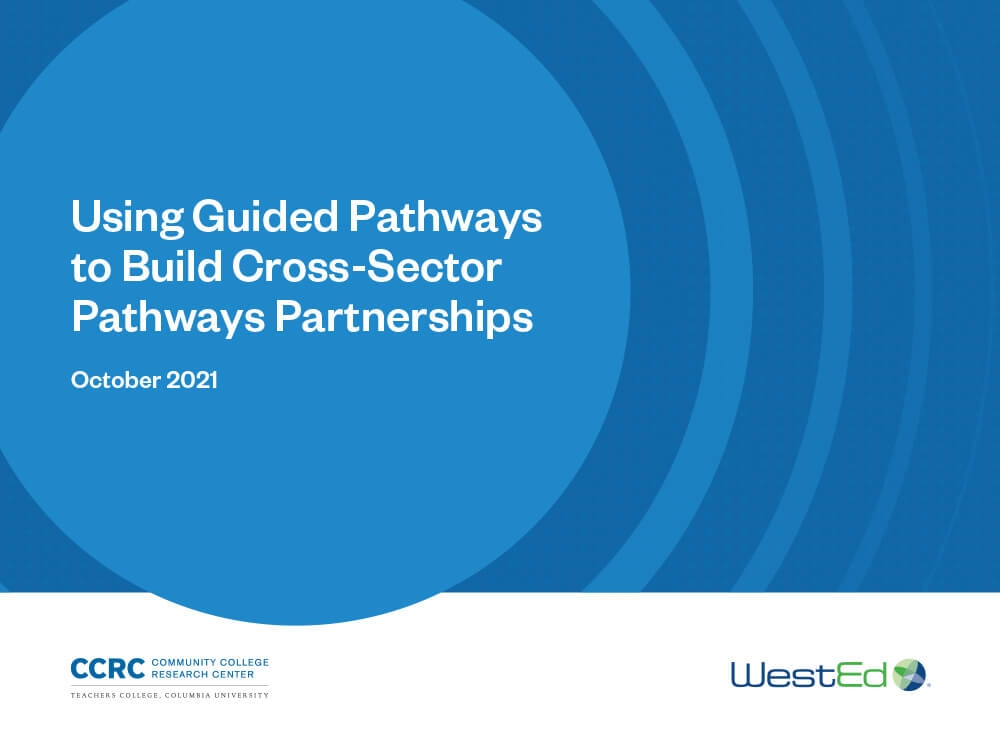
Community colleges are beginning to build on guided pathways reforms in partnership with employers, universities, and K–12 schools to create cross-sector pathways to college and career opportunities for students—particularly those students traditionally underserved by higher education. The aim is to improve economic mobility for community residents and to meet the workforce needs of area employers. Based on an exploratory study at four such colleges undertaken by researchers from CCRC and WestEd, this report introduces a cross-sector pathways model and highlights emerging practices and strategies to strengthen ties between community colleges and their partners. These strengthened partnerships reduce barriers that students face as they transition between institutions and employers in their journey from high school to college and careers.
The authors first discuss key challenges facing community colleges and their students today, and they illustrate how guided pathways reform efforts that emphasize cross-sector partnerships serve as a model for addressing these challenges. Drawing on examples from the study, they then outline a set of 12 innovative cross-sector pathways practices, three that occur in each of these domains: (1) within community colleges themselves, (2) between community colleges and employers, (3) between community colleges and universities, (4) and between community colleges and K–12 schools. The authors also describe strategies that community colleges are using to build mutually beneficial relationships with employers and other educational institutions.
The report draws three broad conclusions:
- Innovating at scale rather than through targeted programs—that is, establishing new practices that affect all students—creates and sustains momentum for institutional transformation.
- Developing and sustaining innovations at scale requires changing the mindsets of faculty, staff, and partners.
- Implementing cross-sector pathways at scale requires community colleges to move from transactional relationships to transformational relationships focused on “win-wins” for the colleges and their external partners.
